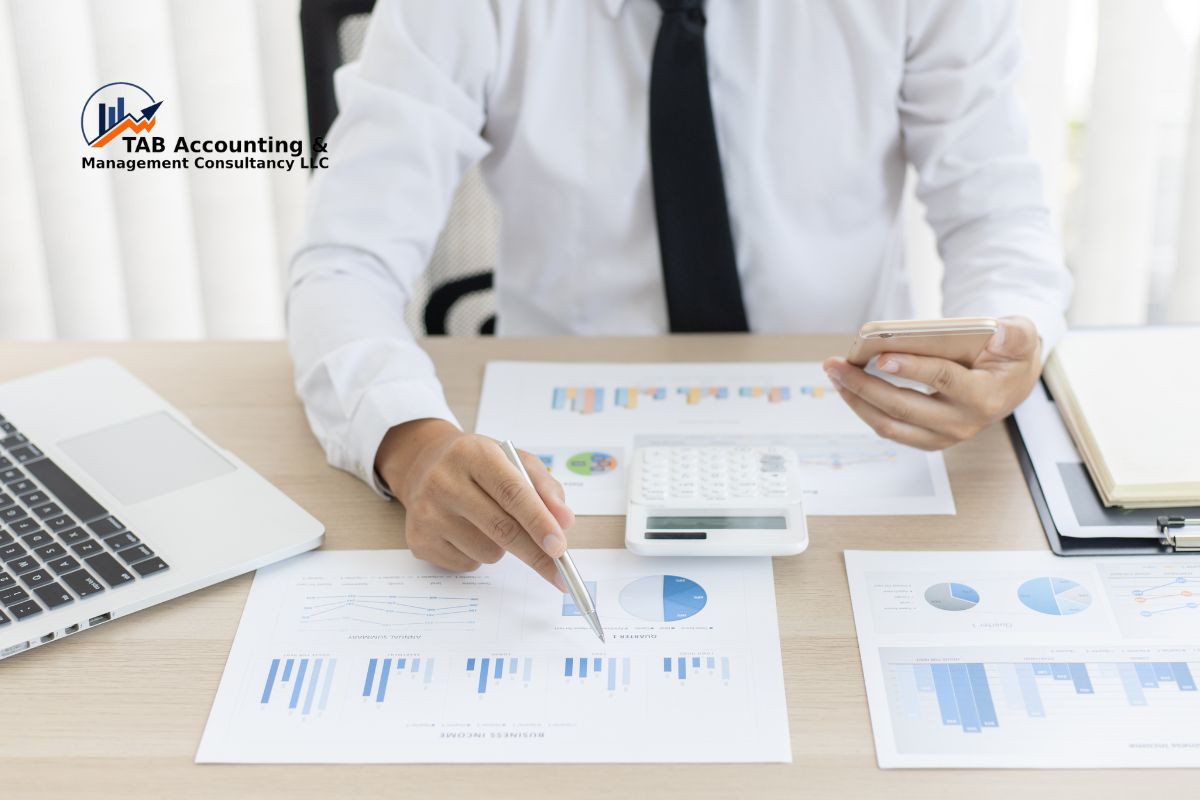Understanding how the Financial Audit Authority operates can help businesses maintain stability and financial health. In a rapidly evolving financial landscape, audits play a crucial role in ensuring transparency and accuracy in financial dealings. The Financial Audit Authority plays a significant role in overseeing financial integrity in the UAE. By employing advanced technologies and auditing techniques, it helps detect fraud and errors that could undermine financial stability. This process ensures businesses operate with transparency and fosters trust among investors, customers, and stakeholders.
Understanding Financial Audits
A financial audit is a detailed examination of an organization’s financial records to determine whether they comply with legal regulations and accurately represent the company’s financial position. These audits play a key role in maintaining trust with stakeholders and ensuring credibility in financial transactions.
Audits help businesses detect financial misstatements and fraudulent activities, ensuring compliance with UAE tax laws and accounting standards. They also contribute to improved financial management and operational efficiency. Financial audits assess internal controls to identify weaknesses that could lead to fraud or financial errors. Companies with strong financial governance are better equipped to prevent fraudulent activities and maintain financial stability.
The Role of the Financial Audit Authority
The Financial Audit Authority plays a critical role in maintaining financial transparency and preventing fraudulent activities in the UAE. By enforcing strict audit regulations, ensures fairness in the financial sector and upholds the integrity of business operations.
The Financial Audit Authority conducts independent financial audits to assess a company’s financial health, investigates suspicious financial activities, and ensures that businesses comply with UAE financial laws. By working closely with organizations, it promotes financial transparency and strengthens regulatory compliance. The authority’s proactive approach helps build confidence in the UAE’s financial system and ensures businesses operate securely and ethically.
Common Types of Fraud Detected in Audits
Fraud can have severe consequences for businesses, leading to financial losses and reputational damage. Financial statement fraud occurs when companies manipulate financial reports to present a more favorable financial position. This can involve overstating revenues, hiding expenses, or falsifying transactions. Asset misappropriation is another common type of fraud, where employees misuse company resources for personal gain. Unauthorized fund transfers, inventory theft, and fraudulent expense claims are some ways businesses experience financial losses due to asset misappropriation.
Payroll fraud is another serious issue that affects companies. Fraudulent payroll activities can include the presence of ghost employees on the payroll, where nonexistent workers receive salaries, or falsified work hours and overtime claims by employees. Expense fraud occurs when employees submit exaggerated or false reimbursement claims, leading to unnecessary financial strain on businesses.
To prevent fraud, businesses must establish internal controls for financial transactions, conduct regular financial audits, and use modern fraud detection techniques. Strengthening financial oversight helps protect businesses from financial manipulation and ensures compliance with regulations.
Accounting Fraud Detection Methods
Financial auditors use a range of techniques to identify fraudulent activities and financial misstatements. Forensic accounting plays a key role in fraud detection by analyzing financial transactions, identifying inconsistencies, and verifying financial statements for accuracy. Auditors with forensic accounting expertise examine financial records to uncover fraudulent activities that may otherwise go unnoticed.
Data analysis is another crucial fraud detection method. Advanced data analytics tools help auditors detect unusual financial patterns and discrepancies in financial reports. These tools enable auditors to conduct thorough examinations and highlight irregularities that may indicate fraud. Ratio analysis is commonly used to compare financial performance over time, helping businesses identify unexpected trends that may signal fraudulent activity.
Analyzing financial data for anomalies allows auditors to detect inconsistencies that might not be visible through traditional auditing methods. By using a combination of forensic accounting, data analysis, and ratio comparisons, auditors can effectively identify fraudulent transactions and ensure financial reports reflect accurate information.
Risk Assessment in Audit Practices
A comprehensive risk assessment is essential for detecting fraud risks within an organization. This process helps businesses identify potential areas of concern and implement effective fraud prevention measures. Evaluating internal controls is a crucial part of risk assessment, ensuring that businesses have the necessary safeguards to prevent financial fraud.
A detailed risk assessment involves identifying potential fraud risk factors within a company, evaluating the effectiveness of internal controls, and assessing vulnerabilities in financial transactions. Strengthening fraud prevention strategies improves financial oversight and reduces exposure to fraudulent activities.
Internal controls play a crucial role in minimizing fraud risks. Segregation of duties ensures that financial responsibilities are divided among multiple employees, reducing the likelihood of fraudulent transactions. Approval processes add an extra layer of verification by requiring multiple levels of authorization for financial activities. Regular monitoring and periodic audits enhance financial transparency and accountability within an organization.
The Process of Detecting Fraud
Fraud detection in financial audits involves several critical steps, starting with careful audit planning. Auditors set clear objectives and determine key areas that require thorough examination. Gathering financial evidence is an essential part of the process, requiring auditors to review financial statements, analyze bank records, and assess transaction histories.
Data analysis helps auditors detect fraud patterns and identify inconsistencies in financial reports. Auditors use trend analysis and forensic accounting techniques to examine financial data and uncover potential fraudulent activities. Once evidence is analyzed, audit findings are reported, highlighting financial discrepancies and recommending corrective measures.
Using Technology in Fraud Detection
Advancements in technology have significantly improved fraud detection in financial audits. Auditors use fraud detection software that incorporates artificial intelligence and machine learning to analyze vast amounts of financial data and detect irregularities. These tools enhance efficiency and accuracy in fraud detection by identifying unusual transaction patterns and financial anomalies.
Data analytics plays a key role in modern audits by allowing auditors to examine financial records in real time. Advanced analytical tools help auditors detect suspicious activities and assess financial trends, making fraud detection more efficient. Blockchain technology has also transformed auditing by providing secure and transparent financial records. The decentralized nature of blockchain ensures that financial transactions are tamper-proof and easily verifiable.
By incorporating technology into fraud detection practices, businesses can strengthen their financial security and reduce the risk of fraudulent activities.
Red Flags for Fraud Detection
Auditors look for warning signs that may indicate fraudulent activities within an organization. Some of the common red flags for fraud detection include inconsistencies in financial reports, unusual transactions that do not align with business operations, and missing documentation for financial activities. Frequent adjustments in financial statements and discrepancies in cash flow records can also signal potential fraud.
Recognizing these red flags helps businesses take proactive steps to prevent fraud and strengthen their financial security.
Internal Controls as Fraud Prevention
Establishing strong internal controls is one of the most effective ways to prevent financial fraud. Segregating duties ensures that financial responsibilities are shared among employees, reducing opportunities for fraudulent transactions. Approval hierarchies add an extra layer of security by requiring verification for financial decisions. Regular audits and ongoing financial monitoring help businesses detect irregularities early and take corrective actions.
A culture of accountability and financial transparency is essential for minimizing fraud risks and maintaining financial integrity. Organizations that prioritize internal controls are better equipped to protect themselves from fraudulent activities.
Engagement with External Auditors
External auditors provide an unbiased assessment of a company’s financial health and play a key role in fraud detection. By conducting independent audits, they help businesses identify financial mismanagement and ensure compliance with financial laws. Working with external auditors enhances investor confidence and strengthens a company’s financial credibility.
Collaborating with auditors ensures that financial statements are accurate and transparent, improving overall business integrity. External audits add an extra layer of oversight, helping businesses maintain ethical financial practices.
Conclusion
The Financial Audit Authority plays a critical role in fraud detection and financial security in the UAE. Financial audits help businesses prevent fraud, ensure compliance, and maintain trust with stakeholders.
With new fraud detection technologies, companies can stay ahead of financial risks and strengthen internal controls. For professional audit support, consult TABM Accounting to protect your business from fraud and financial discrepancies.























